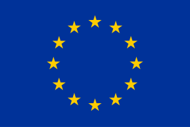BIOFRUITNET project: Making stronger networks in organic fruit growing
Knowledge sharing is key for bringing together innovative ideas and identify new solutions in organic farming. The Horizon 2020 BIOFRUITNET project, that aimed to collect, evaluate, and select locally known strategies and best practices, and make them easily accessible to organic fruit growers across Europe, ended in April 2023.
Three years of gathering information in 18 countries
Over the past three years, BIOFRUITNET sampled and analysed information from farmers from over 18 European countries. This allowed to pinpoint the most concerning obstacles to the organic pome, stone and citrus fruit growing systems in northern, central and southern Europe. Farmers’ experience and their best practices preferences were the starting point to foster knowledge flow and support European organic fruit growers. From here, the BIOFRUITNET consortium applied a multi actor approach, where project partners and external experts assessed the efficiency of the collected measures, identified knowledge gaps, and proposed recommendations for further research.
Using European data to deepen local knowledge on organic fruit growing – More than 150 materials produced for farmers and advisers
BIOFRUITNET had knowledge flow and spreading of the best strategies and practice to end users at its core. To serve this purpose, the project produced visually attractive materials fostering the implementation of best practices and strategies in organic pome, stone and citrus growing systems. These include:
- 100 practice abstracts,
- 27 videos,
- 5 podcasts, and
- 3-learning courses.
All materials are available on the project website up to 3 years from the end of the project. Furthermore, all the materials will be kept up to date and will be available in the long term on the Organic Farm Knowledge platform.

The Organic Farm Knowledge platform: a unique resource for the organic sector
For the past 10 years, the Organic Farm Knowledge platform has been stimulating the exchange of knowledge among organic farmers, farm advisers and scientists, providing and promoting a wide range of tools and resources with the aim to enhance productivity and quality in organic farming across Europe. The platform covers a variety of themes spanning from crop production to animal husbandry, seeds, breeding, and now also organic fruit growing.
Messages from the project
BIOFRUITNET stresses the importance of local or regional strategies. There is the need to deepen the knowledge on pests and diseases that are emerging in specific areas, and identify varieties that are resilient to biotic and abiotic stress in given local conditions. This is because needs in organic fruit growing differ across Europe, with obstacles that may be unique to certain regions, or have different relevance among various areas.
To further strengthen organic fruit growing systems, BIOFRUITNET recommends to:
- Support functional biodiversity as a powerful resource for pests and disease management. Local and regional research should focus on understanding the interrelations between measures enhancing biodiversity, antagonists of the key pests, and the effect of the climate and the surrounding environment.
- Support research on use of beneficials and alternative physical methods (e.g. vibration-based pest disruption)
- Allocate funding to breeding of varieties with good market quality, and shelf life that are tolerant to the main diseases and adapted to organic farming.
- Support demonstration projects showing integration of methods/practices (e.g. living mulches, microbial products, mass trapping, etc.).
For more information about the project visit BIOFRUITNET’s website and follow the project on Facebook and Twitter.
Within BIOFRUITNET, IFOAM Organics Europe has been leading knowledge transfer and dissemination through easy-to-read end user materials. IFOAM Organics Europe was also responsible for developing a communication kit to maximise the impact of BIOFRUITNET at events, fairs, and congresses.


